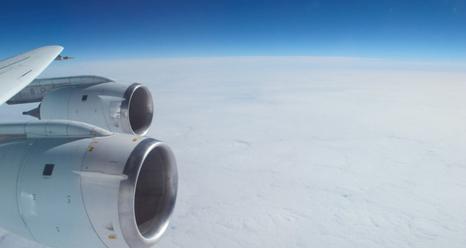Scientists and flight crew members with NASA's airborne mission to study Earth's polar ice are beginning another Antarctic campaign.
News
Students Invited to Connect with NASA Earth Explorers
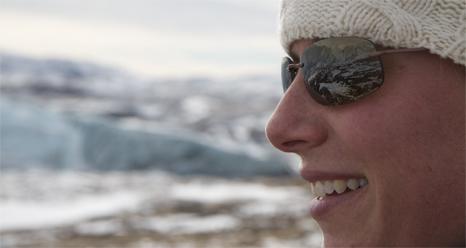
NASA Earth explorers will take students on virtual trips around the world to inspire them to pursue science, technology, engineering and math careers.
NASA's ER-2 Checks Out Atmospheric Science Sensors

A NASA ER-2 is conducting engineering evaluations of and collecting science data with TWiLiTE and NAST-I atmospheric sensors.
HS3 Mission Thoroughly Investigates Long-Lived Hurricane Nadine
NASA's Hurricane and Severe Storm Sentinel scientists had a fascinating tropical cyclone to study in long-lived Hurricane Nadine. NASA's Global Hawk aircraft has investigated Nadine five times during the storm's lifetime.
NASA Airborne Radar to Study Volcanoes in Alaska and Japan
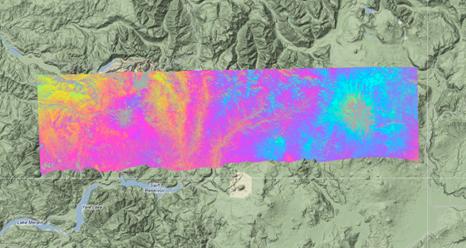
NASA's Airborne Science C-20A, carrying JPL's UAVSAR sensor, travels to Alaska and Japan this week for a radar imaging study of active volcanoes.
Cutting-Edge Technology Makes NASA's Hurricane Mission a Reality
Scientists are currently flying a suite of state-of-the-art instruments that are gathering difficult-to-obtain measurements of wind speeds, precipitation, and cloud structures in and around tropical storms.
NASA Explores Underground Substructures Below Fault
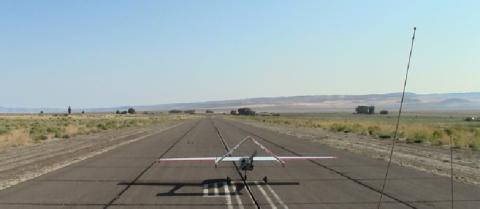
The Sensor Integrated Environmental Remote Research Aircraft (SIERRA) allows scientists to explore hidden underground substructures below Surprise Valley fault.
High-Flying NASA Aircraft Helps Develop New Science Instruments
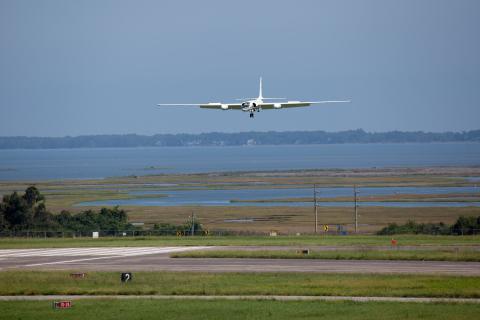
Over the next few weeks, an ER-2 high altitude research aircraft will take part in the development of two future satellite instruments.
NASA Global Hawk Watches Tropical Storm Nadine's 'Birth'
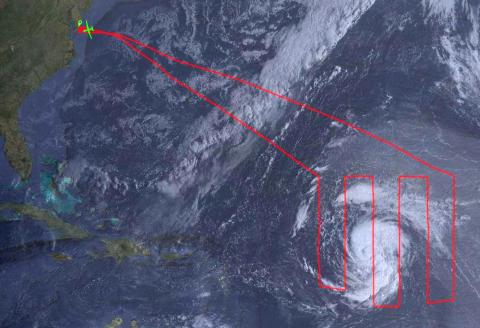
Tropical Depression 14 strengthened into Tropical Storm Nadine while NASA's Global Hawk aircraft captured the event. While the Global Hawk was gathering data over the storm, NASA satellites were also analyzing Nadine from space.
NASA's HS3 Mission Begins with Flight to Hurricane Leslie
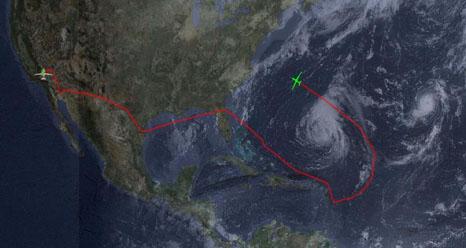
NASA has begun its latest hurricane science field campaign by flying an unmanned Global Hawk aircraft over Hurricane Leslie in the Atlantic Ocean during a day-long flight that began in California and ended in Virginia.
Two Hurricane Global Hawks, Two Sets of Instruments
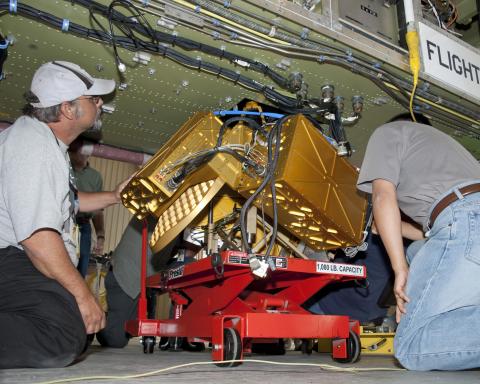
HS3 will study hurricanes at the end of the summer, flying two high-altitude, long-duration unmanned aircraft with different instruments over the storms.
NASA's New Way to Track Formaldehyde
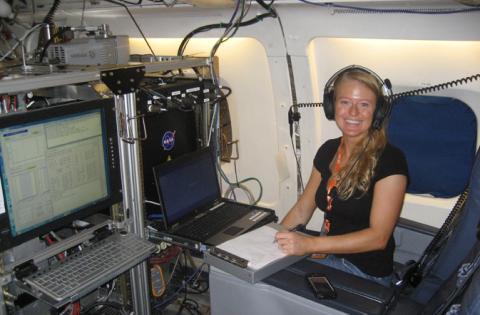
Urban pollution, such as formaldehyde, that winds up in Earth's upper atmosphere can wreak havoc on the ozone layer.
NASA ER-2 Collects Perseid Meteor Shower Dust
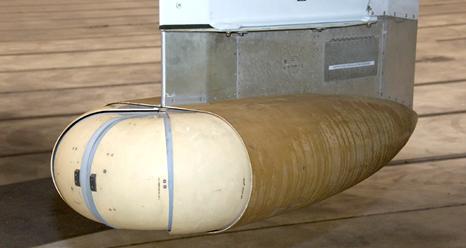
NASA's ER-2 is using underwing Large Area Collectors to collect cosmic dust during the Perseid meteor shower the second week of August.
NASA Conducts Airborne Study of Colorado Landslide
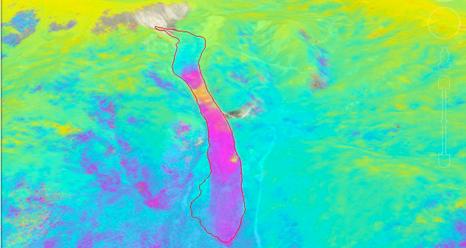
Radar images of Colorado's centuries-old Slumgullion landslide from NASA's C-20A Earth science aircraft aid scientists' understanding of slide motion.
Hurricane Study a Challenge to Global Hawk Pilots
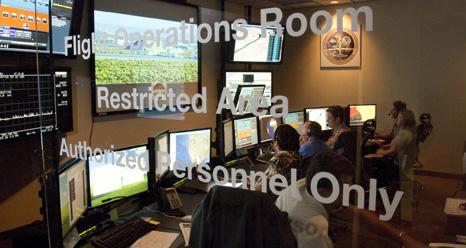
NASA's Hurricane and Severe Storm Sentinel mission will require Global Hawk pilots to fly the unmanned aircraft from two locations on opposite coasts.
When Wildfire Smoke and Thunderstorms Collide
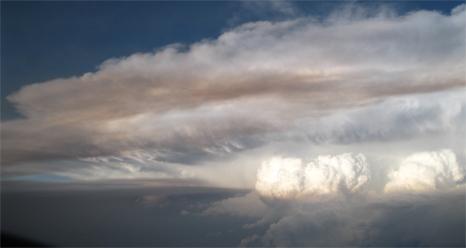
The Deep Convective Clouds and Chemistry (DC3) airborne campaign got an up-close look at what happens when wildfire smoke makes its way into a thunderstorm.
College Students Study the Earth From NASA's P-3B Flying Lab
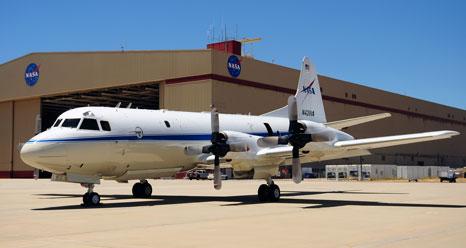
Thirty-two undergraduate and graduate students are participating in a NASA Airborne Science Program field experience at NASA's Dryden Aircraft Operations Facility in Palmdale, Calif. this week designed to immerse them in the agency's Earth science research.
NASA C-20A Wrapping up Iceland Ice Caps Survey
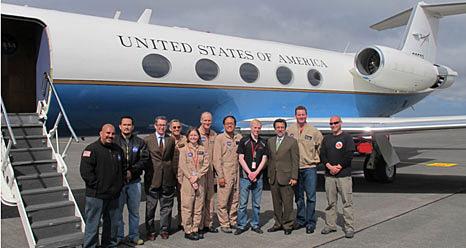
Flight and ground crew of NASA's environmental science research aircraft host visit by U.S. ambassador to Iceland during stay in Keflavik.
Teachers Experience Arctic Research with IceBridge
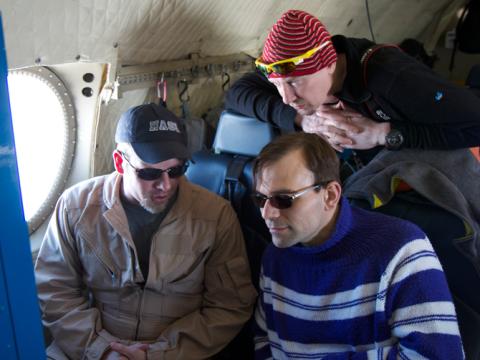
During the 2012 Arctic campaign, teachers from the United States, Denmark and Greenland joined IceBridge researchers as they surveyed Greenland's sea ice, ice sheet and glaciers.
NASA Airborne Radar Studies Icelandic Ice Caps
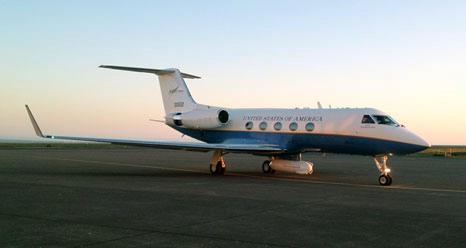
A NASA science aircraft carrying a specially designed synthetic aperture radar is currently in Iceland as part of a study to derive 3D surface velocity fields for two of the country's ice caps.
NASA DC-8, NCAR G-V Continue Bumpy Science Flights
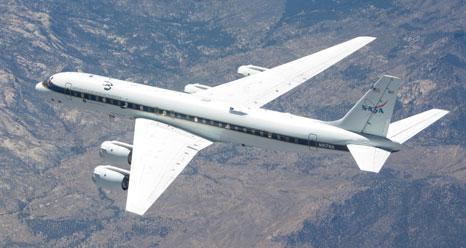
Two flying science laboratories fly around thunderstorm cores and anvil clouds over the central U.S. during NCAR's DC3 atmospheric science campaign.
NASA Science Grips Two Brothers
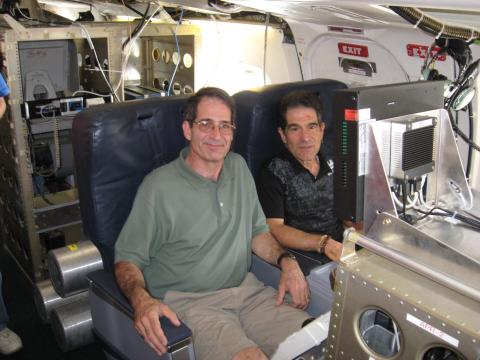
Two principal researchers on several airborne sensors had more in common than conducting atmospheric research. Gerry and Andy Heymsfield are brothers.
NASA Sending Unmanned Aircraft Over Hurricanes
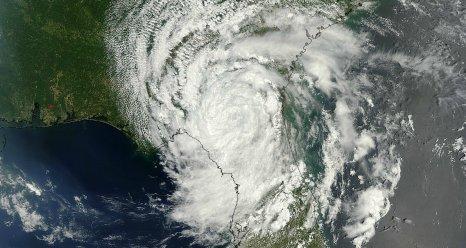
Beginning this summer and over the next several years, NASA will be sending unmanned aircraft dubbed "severe storm sentinels" above stormy skies to help researchers and forecasters uncover information about hurricane formation and intensity changes.
DC3 Thunderstorm Study Science Flights Underway
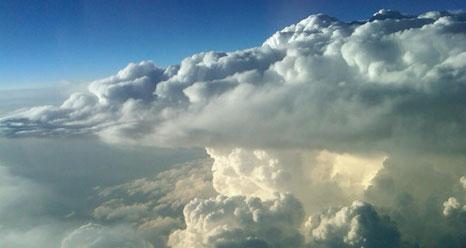
Complex environmental science campaign over central U.S. to aid scientists' understanding of how large thunderstorms affect atmospheric chemistry.
2012 Arctic IceBridge Complete
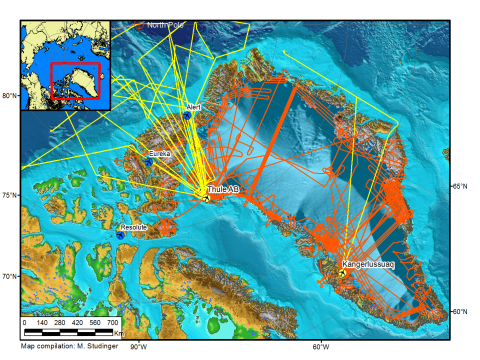
The NASA P-3 has returned home to Wallops Flight Facility after completing a record number of science flight hours for Operation IceBridge.
DC3: Chemistry of Thunderstorms
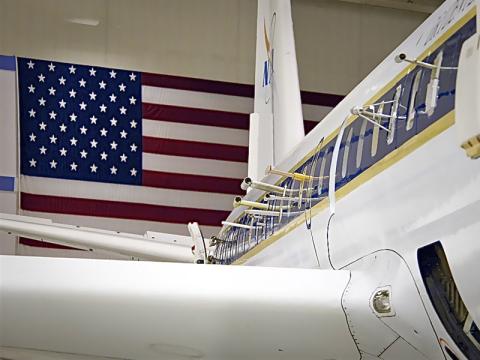
NASA researchers begin a campaign that will take them into the heart of thunderstorm country.
NASA's ER-2 Completes MABEL Validation Deployment
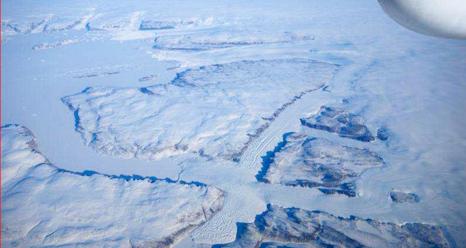
The weather, the aircraft and the science instruments cooperated to successfully validate data from the MABEL laser altimeter planned for IceSat-2.
NASA Langley Aircraft Joins Operation IceBridge
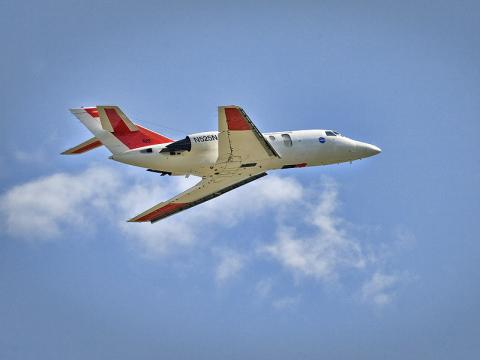
NASA Langley Research Center in Hampton, Va., deployed its newly acquired HU-25C jet as part of NASA's Operation IceBridge.
Good Ice Sheet Data Obtained on MABEL Flights
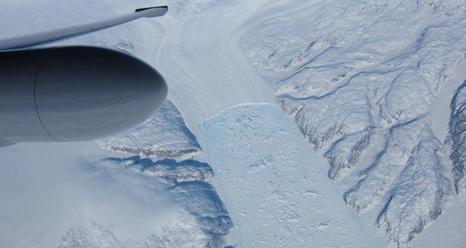
Recent validation flights of the MABEL laser altimeter on NASA's ER-2 are recording data on sea and land-ice elevation and thickness.
IceBridge: A New Home and a New Engine
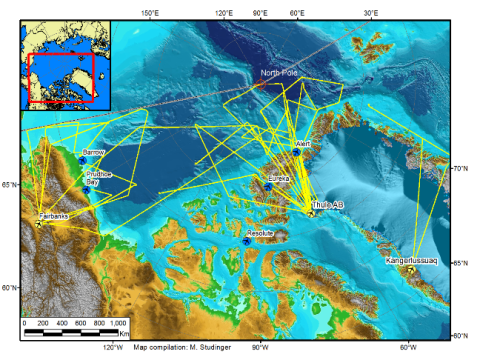
IceBridge scientists and crew finished the first round of survey flights from Thule, Greenland and moved their base of operations south to Kangerlussuaq, Greenland.

